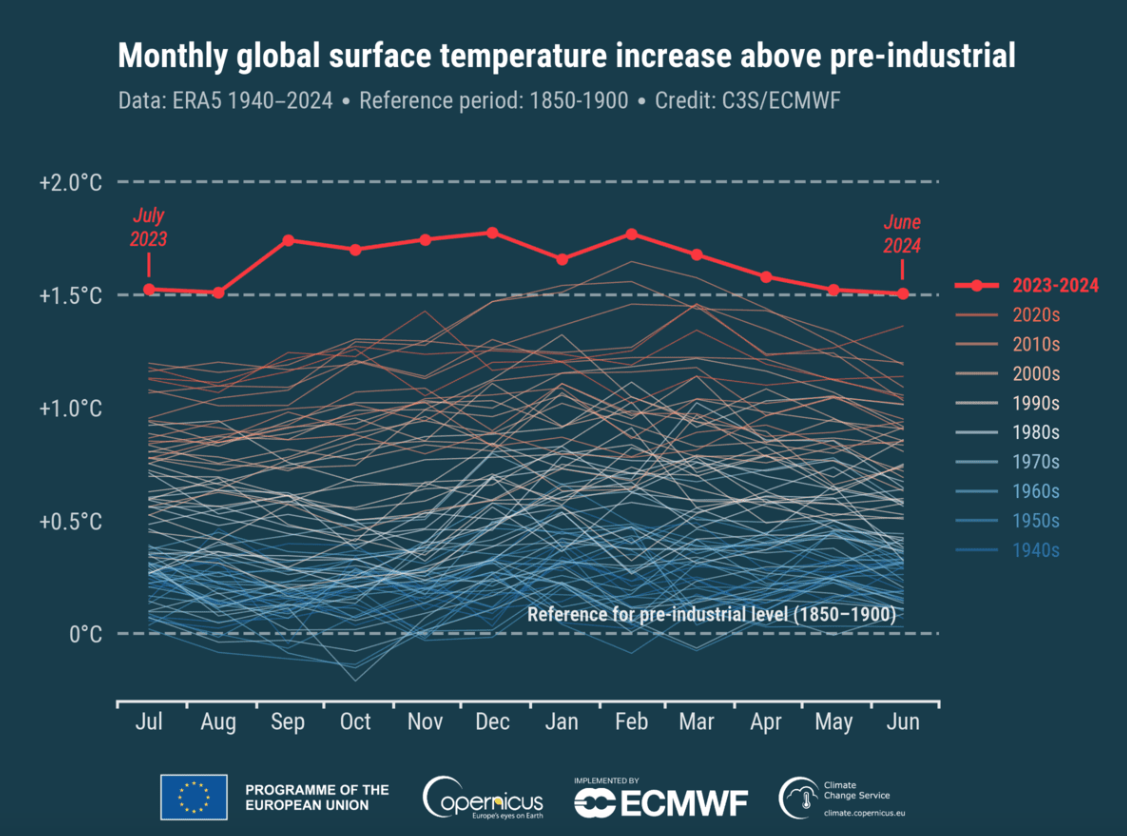Last month, globally, it was 1.5 degrees above the pre-industrial average, and in Europe the global warming reached +1,57 degrees Celsius compared to the last 30 years

Between July 2023 and June 2024, global warming averaged +1.64°C
According to June data, in the last 12 months, the planet has been consistently above the threshold of 1.5 degrees of global warming. The thermal anomaly of the last year thus reached +1,64°C above the average of the pre-industrial period. Not only that, for the 13th month in a row, the monthly temperature set a new record. This was announced by the European satellite monitoring system Copernicus.
The anthropogenic causes of 1 year at more than 1.5°C

The monthly record bar is not new. It had already happened between 2015 and 2016, thanks also to El Niño’s action. The Child has also helped bring the global mercury column to new primates. However, this phenomenon, which relates to the natural variability of the Earth’s climate system, explains only part of the exceptional temperature trend.
El Niño, when it occurs at a high intensity like last year, adds 1-2 tenths of the degree of global warming. The leap is more massive and stems from anthropogenic causes, mainly the combustion of fossil sources and the increasing accumulation of CO2 in the atmosphere.
According to the International Energy Agency (IEA), greenhouse gas emissions related to the energy sector increased by 1.1 per cent in 2023 and set a new record at 37.4 billion tons. While the concentration of CO2 in the atmosphere has reached 424 parts per million (ppm), it is now more than 50% higher than at the beginning of the industrial era. Between January and March this year, unprecedented increases continued to record.
Another factor that may have contributed to increased global warming in the past year is the decline in shipping pollution, which has removed a proportion of SO2 from the atmosphere and reduced its reflective action. The hypothesis is just one of those examined by scientists in recent months. Other hypotheses concern initiating positive feedback cycles that are not envisaged by the models. All hypotheses still need to be verified.
Global warming records of June 2024
The fact remains that even in June, the global temperature was significantly higher than the average. The deviation from the average for the last 30 years is 0.67°C and 0.14°C compared to the hottest June ever recorded, 2023.
Data that reflect a global average. The global warming trend in the last month may differ, even significantly, at the regional and local levels. As of June 2024, the trend has continued uninterrupted at the European level. Copernicus recorded +1,57°C: It’s not about the pre-industrial era; it’s about the last 30 years. There are marked differences between the different regions of the continent.












